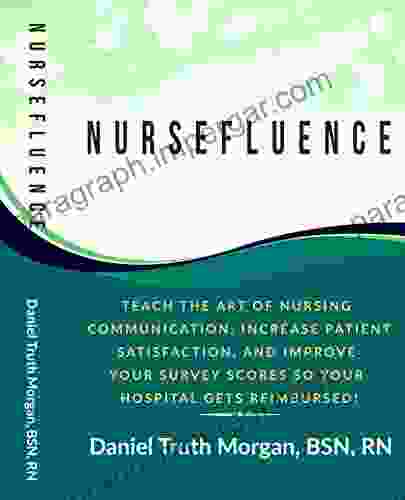How Psychiatry Has Convinced Us To Believe In Its Far Fetched Science

Psychiatry is a pseudoscience that has convinced us to believe in its far-fetched science. This book exposes the truth about psychiatry and its harmful effects on society.
4 out of 5
| Language | : | English |
| File size | : | 1753 KB |
| Text-to-Speech | : | Enabled |
| Enhanced typesetting | : | Enabled |
| Word Wise | : | Enabled |
| Print length | : | 282 pages |
| Lending | : | Enabled |
| Screen Reader | : | Supported |
The History of Psychiatry
Psychiatry has its roots in the 19th century, when doctors began to classify mental illness as a medical condition. This was a time when the medical profession was looking for new ways to explain and treat mental illness, and psychiatry was seen as a way to bring science to the field. However, the science of psychiatry was far from settled, and many of the theories that were put forward were based on speculation and guesswork.
In the early 20th century, psychiatry began to take on a more scientific approach, with the development of new diagnostic tools and treatments. However, the field was still plagued by controversy, and many of the treatments that were used were harmful and ineffective.
The Rise of the DSM
In the 1950s, the American Psychiatric Association (APA) published the first edition of the Diagnostic and Statistical Manual of Mental DisFree Downloads (DSM). The DSM is a manual that provides criteria for diagnosing mental illness. The DSM has been revised several times over the years, and it is now considered the bible of psychiatry.
The DSM has had a major impact on the field of psychiatry. It has helped to standardize the diagnosis of mental illness, and it has made it easier for psychiatrists to communicate with each other. However, the DSM has also been criticized for being too narrow and for pathologizing normal behavior.
The Medicalization of Mental Illness
In recent years, there has been a trend towards the medicalization of mental illness. This means that more and more mental health problems are being treated with medication. This trend is due in part to the increasing power of the pharmaceutical industry, which has spent billions of dollars marketing its products to psychiatrists.
The medicalization of mental illness has had a number of negative consequences. It has led to the over-prescription of medication, and it has made it more difficult for people to get the help they need.
The Harmful Effects of Psychiatry
Psychiatry has had a number of harmful effects on society. It has led to the stigmatization of mental illness, and it has made it difficult for people to get the help they need. It has also led to the over-prescription of medication, which can have serious side effects.
One of the most harmful effects of psychiatry is its focus on diagnosis. Psychiatrists are trained to diagnose mental illness, and they often do so without taking into account the individual's unique circumstances. This can lead to people being misdiagnosed and treated for conditions that they do not have.
Another harmful effect of psychiatry is its emphasis on medication. Psychiatrists often prescribe medication as a first-line treatment for mental illness. However, medication is not always necessary, and it can have serious side effects. In some cases, medication can even make mental illness worse.
The Future of Psychiatry
The future of psychiatry is uncertain. However, there is a growing movement of people who are challenging the status quo. These people are calling for a more holistic approach to mental health, one that takes into account the individual's unique circumstances and emphasizes non-medical treatments.
The future of psychiatry is in our hands. We can choose to continue down the path that we are on, or we can choose to create a new future for mental health. A future that is based on compassion, understanding, and hope.
Psychiatry is a pseudoscience that has convinced us to believe in its far-fetched science. This book has exposed the truth about psychiatry and its harmful effects on society. It is time for us to wake up to the dangers of psychiatry and to demand a new approach to mental health.
We need a mental health system that is based on compassion, understanding, and hope. We need a system that focuses on helping people to get better, not on labeling them with a diagnosis. We need a system that empowers people to take control of their own mental health.
The future of mental health is in our hands. Let's work together to create a future that is free from the harmful effects of psychiatry.
Buy the book now
4 out of 5
| Language | : | English |
| File size | : | 1753 KB |
| Text-to-Speech | : | Enabled |
| Enhanced typesetting | : | Enabled |
| Word Wise | : | Enabled |
| Print length | : | 282 pages |
| Lending | : | Enabled |
| Screen Reader | : | Supported |
Do you want to contribute by writing guest posts on this blog?
Please contact us and send us a resume of previous articles that you have written.
 Book
Book Novel
Novel Page
Page Chapter
Chapter Text
Text Story
Story Genre
Genre Reader
Reader Library
Library Paperback
Paperback E-book
E-book Magazine
Magazine Newspaper
Newspaper Paragraph
Paragraph Sentence
Sentence Bookmark
Bookmark Shelf
Shelf Glossary
Glossary Bibliography
Bibliography Foreword
Foreword Preface
Preface Synopsis
Synopsis Annotation
Annotation Footnote
Footnote Manuscript
Manuscript Scroll
Scroll Codex
Codex Tome
Tome Bestseller
Bestseller Classics
Classics Library card
Library card Narrative
Narrative Biography
Biography Autobiography
Autobiography Memoir
Memoir Reference
Reference Encyclopedia
Encyclopedia Jim Piddock
Jim Piddock Jim Makowicki
Jim Makowicki Jim Peterson
Jim Peterson Jeffrey Waincymer
Jeffrey Waincymer Jinee Lokaneeta
Jinee Lokaneeta Jim Conlon
Jim Conlon Jenae Smith
Jenae Smith Jeff Moyer
Jeff Moyer Joan Francuz
Joan Francuz John Boessenecker
John Boessenecker Jessica Redland
Jessica Redland Joan Gil
Joan Gil Joe Dixon
Joe Dixon Jennifer Kimberly
Jennifer Kimberly Ji Chen
Ji Chen Jeffery D Nokes
Jeffery D Nokes Joe Sachs
Joe Sachs Jim Vernon
Jim Vernon Joe Grutzik
Joe Grutzik Jeremiah Gertler
Jeremiah Gertler
Light bulbAdvertise smarter! Our strategic ad space ensures maximum exposure. Reserve your spot today!

 Julian PowellUnlock the Interconnected Web of Literary and Cultural Theory: An In-Depth...
Julian PowellUnlock the Interconnected Web of Literary and Cultural Theory: An In-Depth... Wade CoxFollow ·18.7k
Wade CoxFollow ·18.7k Guillermo BlairFollow ·13.3k
Guillermo BlairFollow ·13.3k Kyle PowellFollow ·13.3k
Kyle PowellFollow ·13.3k Harold PowellFollow ·17.7k
Harold PowellFollow ·17.7k Shannon SimmonsFollow ·7.4k
Shannon SimmonsFollow ·7.4k Ignacio HayesFollow ·5k
Ignacio HayesFollow ·5k Ed CooperFollow ·9.6k
Ed CooperFollow ·9.6k Glen PowellFollow ·7.5k
Glen PowellFollow ·7.5k

 Christian Barnes
Christian BarnesUnleash Your Creativity: Build Interlocking 3D Animal and...
Discover the Art of Paper...

 Terry Bell
Terry BellUnveiling the Secrets of Winning: A Comprehensive Guide...
In the realm of chance and fortune, the...

 Albert Camus
Albert Camus101 Things That You Should Do Before Leaving The House In...
Starting your day right is...

 Anthony Burgess
Anthony BurgessForcing Move 2024 Volume: Unleash Your Inner Grandmaster
Embark on an extraordinary chess...
4 out of 5
| Language | : | English |
| File size | : | 1753 KB |
| Text-to-Speech | : | Enabled |
| Enhanced typesetting | : | Enabled |
| Word Wise | : | Enabled |
| Print length | : | 282 pages |
| Lending | : | Enabled |
| Screen Reader | : | Supported |














